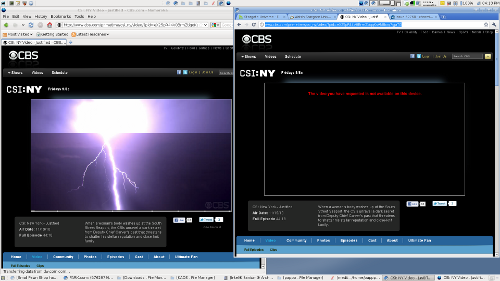(This should be spoiler free)
I just finished reading Zero History, slowly, both because I don’t have much time to do so, and because I was savoring it. That kind of writing is the closest thing to a religious experence those of us who don’t do faith get to have. Note that when I say “slowly” I mean “over the course of 2 weeks, since my copy arrived;” had I not been drawing it out it would have been more like two sittings.
Firstly,do NOT read it without first reading Pattern Recognition and Spook Country. A majority of the characters are common, and are thus introduced without preamble. There are also enritching references to the earlier novels throughout, including several major plot elements which are best left as surprises. On the topic of surprises, I hit an “Oh. Oh holy shit” 335 pages (of 404) in. The first time a book has surprised me in AGES, and it is a wonderful surprise that ties the Bigend trilogy together… and then, in standard Gibson style, entirely loses relevence to the narrative. The revelation is neatly enough laid that one could have figured it out prematurely, but is elegantly enough veiled to discourage such things. Imagine reading Dan Brown and NOT knowing the answer in the first few pages.
Gibson’s writing constantly pushes my vocabulary (which, as one might expect based on how much crap I get for my ordinary diction, is a very unusual thing), and my cultural knowledge (which, again, is unusual; I compulsively consume two news magizines and an unholy lot of Internet every week). I far prefer reading his more recent work with google in reach to fill in the gaps in both, something he has suggested is intentional, or at least approved of.
Looking at the whole trilogy, Pattern Recognition is still perhaps my favorite single novel, and I was disappointed when Spook Country came out, although that may be residual effects from my first attmept to read it in a codeine-induced haze; I literally got the book on the way back from having my wisdom teeth out. There is no disappointment with Zero History – it has all the marvelous locution, and fabulous collection of ethereally related plots that I read Gibson for. In fact, it makes Spook Country better, by tying all it’s plots into a greater system, making them more interesting than they were on their own, like the disinteresting constituent bits of a fascinating mechanical device. I don’t think Zero History stands on it’s own nearly as well as Pattern Recognition, but, particularly as the improved sucessor to Spook Country, it is an excellent novel.
The one nagging concern I have when I think about the Bigend trilogy is about it’s longevity: they are heavily, heavily steeped in ephemera of the moment, to the point that it is partly their topic, and it is unclear to me how well that will age. Pattern Recognition is my favorite largely out of fondness and nostalgia for the ‘now’ it was written in, although also out of a taste for it’s overt topic. It least suffers the problem simply because it predates much of the internet’s collective consciousness, despite having said consciousness as one of its chief concerns. In contrast, Zero History is made up of ecclectic references to Festo’s more eccentric products, iPhones, quadrotor drones, and ekranoplan; things renderd exciting through the fickle fascinations of the interent. Hopefully, like the Curtas and origional toilet seat iBook that filled such roles in Pattern Recogniton they will continue to stand on their own interest.
In short: Go read it, and it’s prequels if you haven’t. It is by far the best novel I’ve read (for the first time) in years, and retains all the enjoyable trappings of popular fiction, despite its literate complication.







